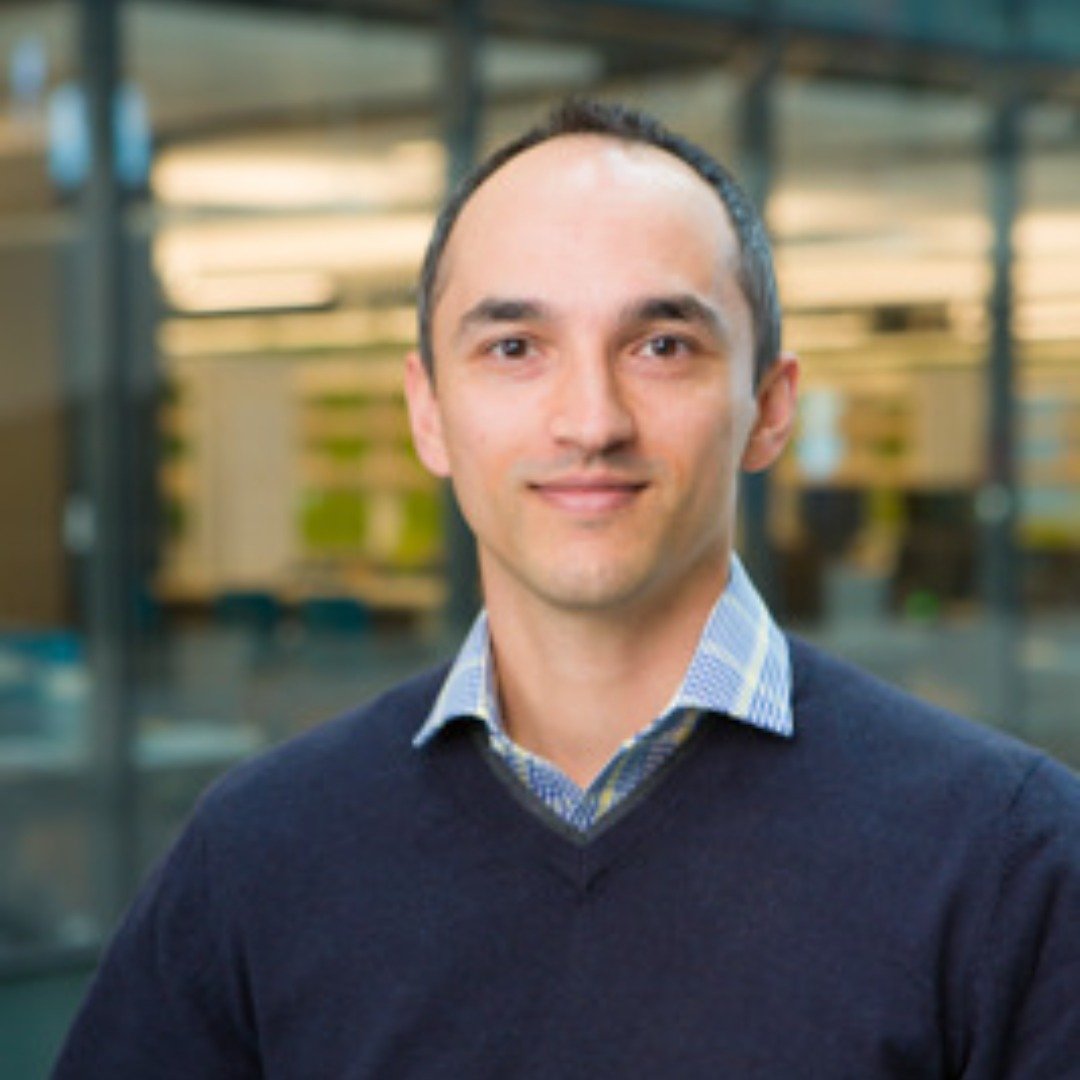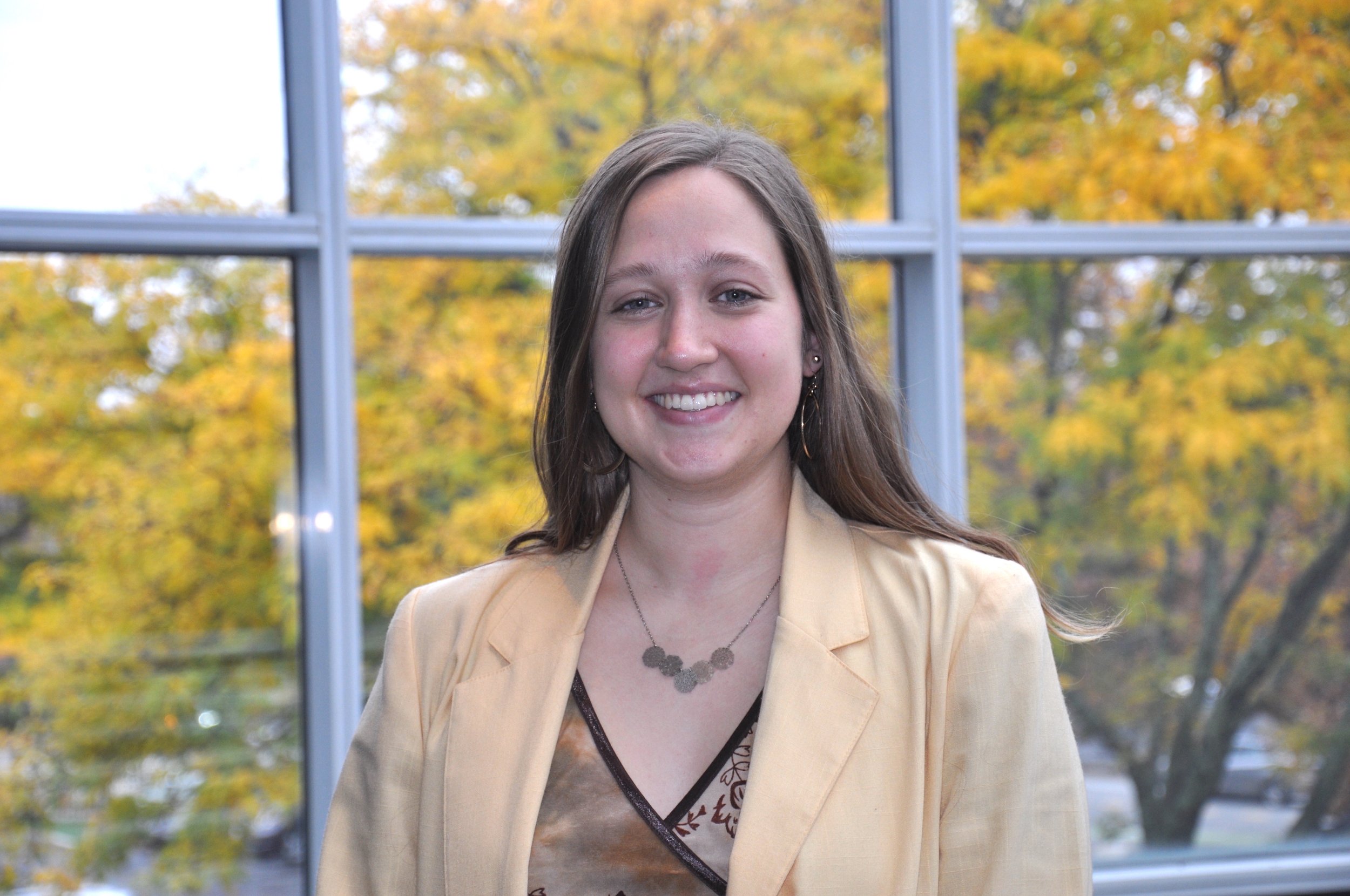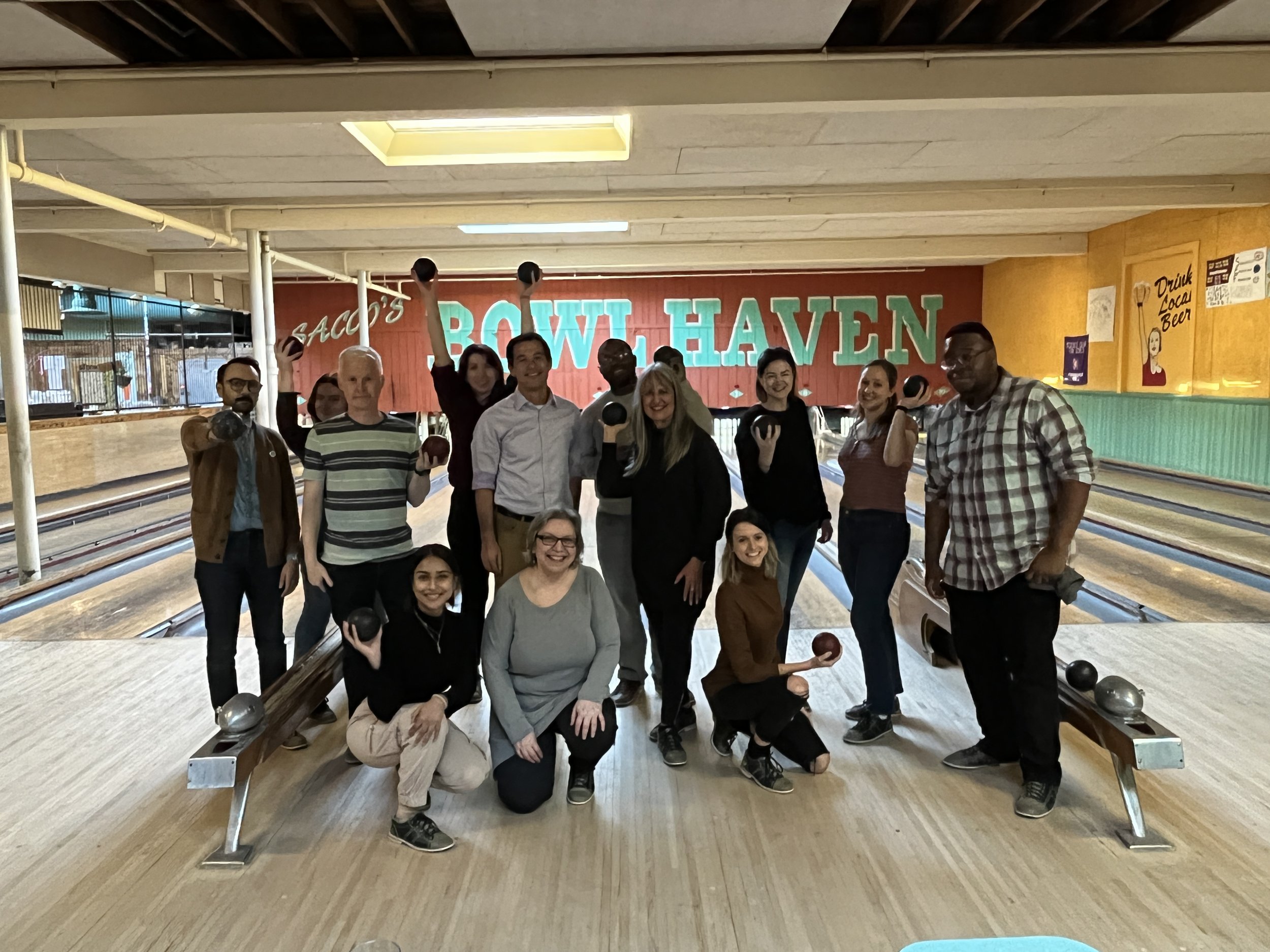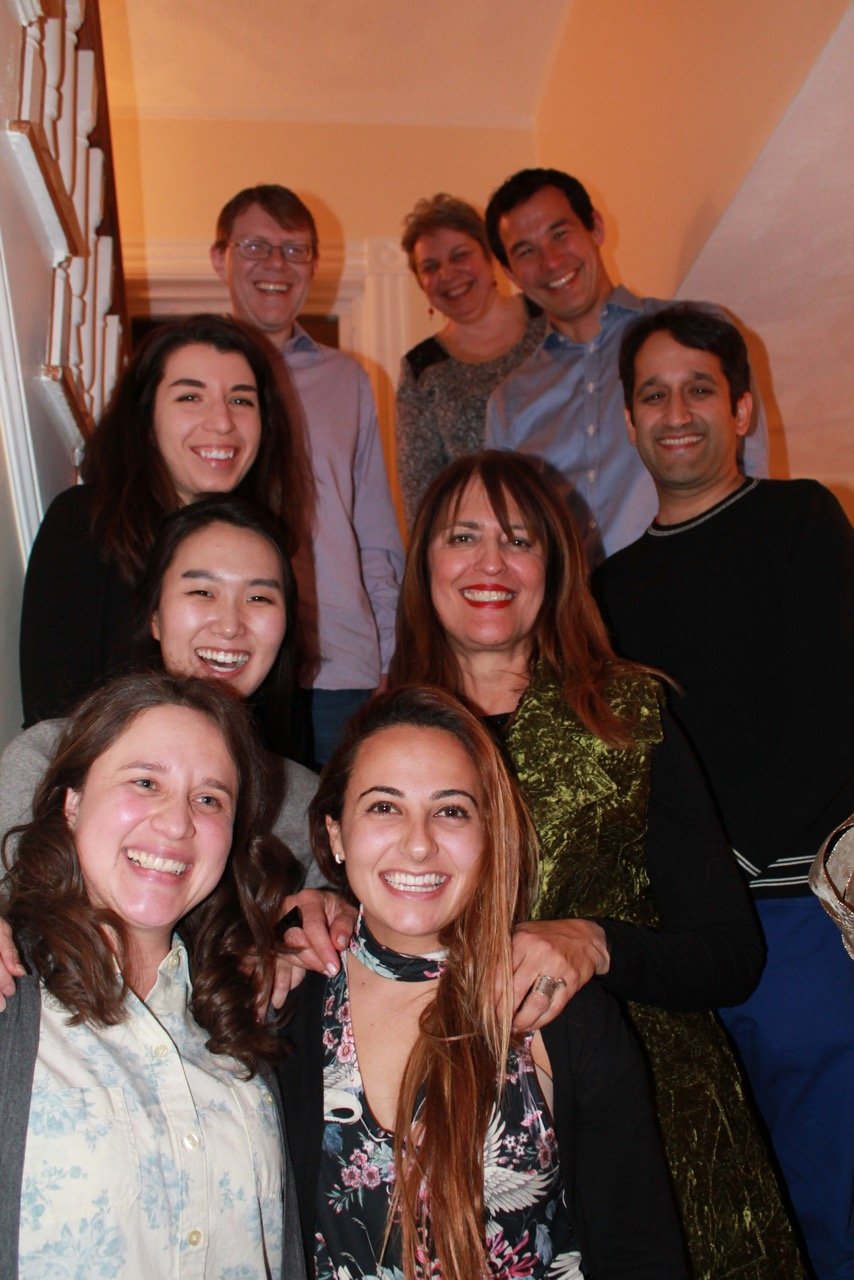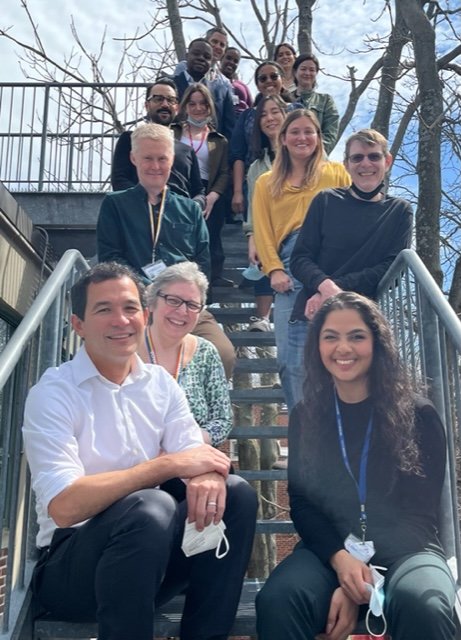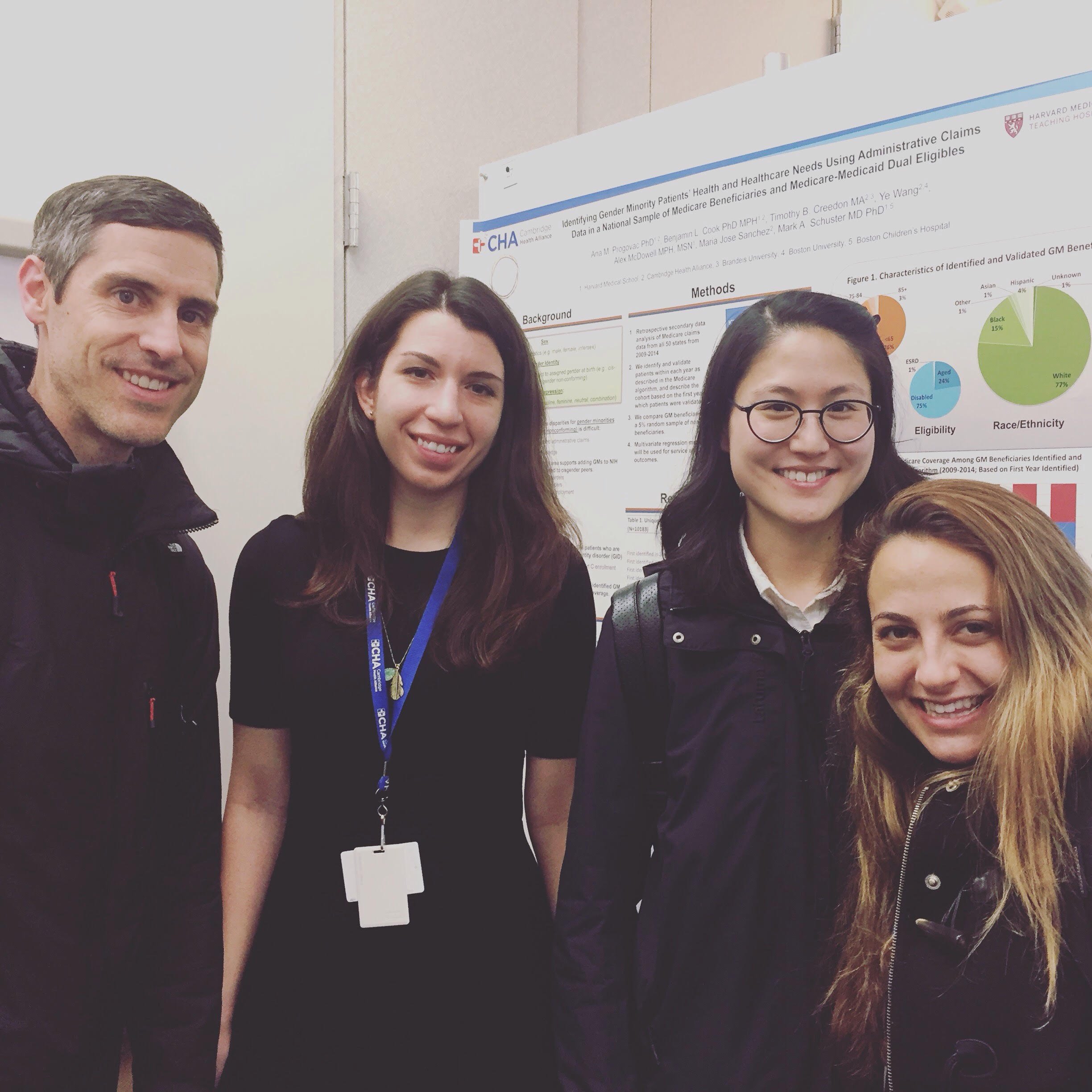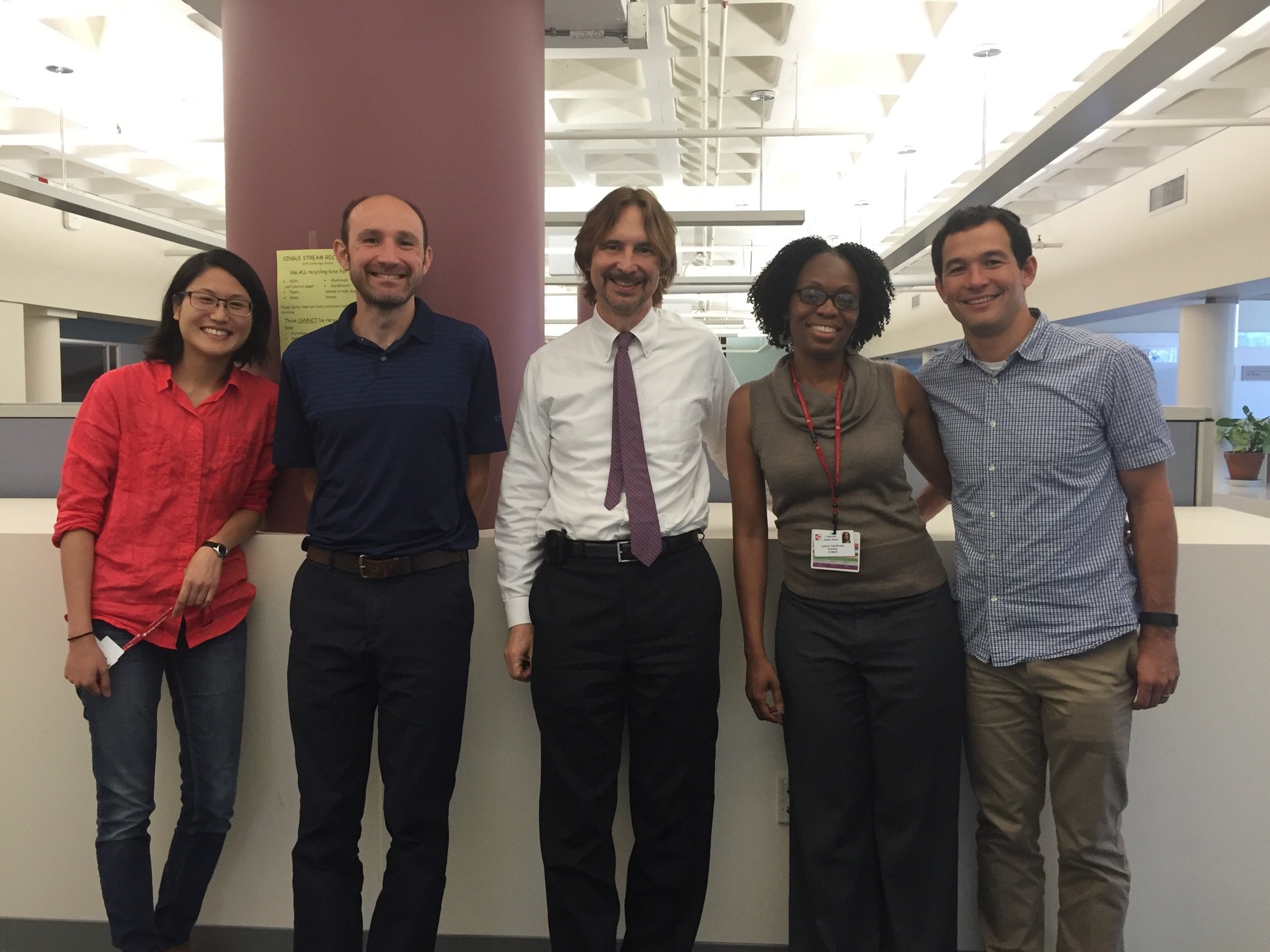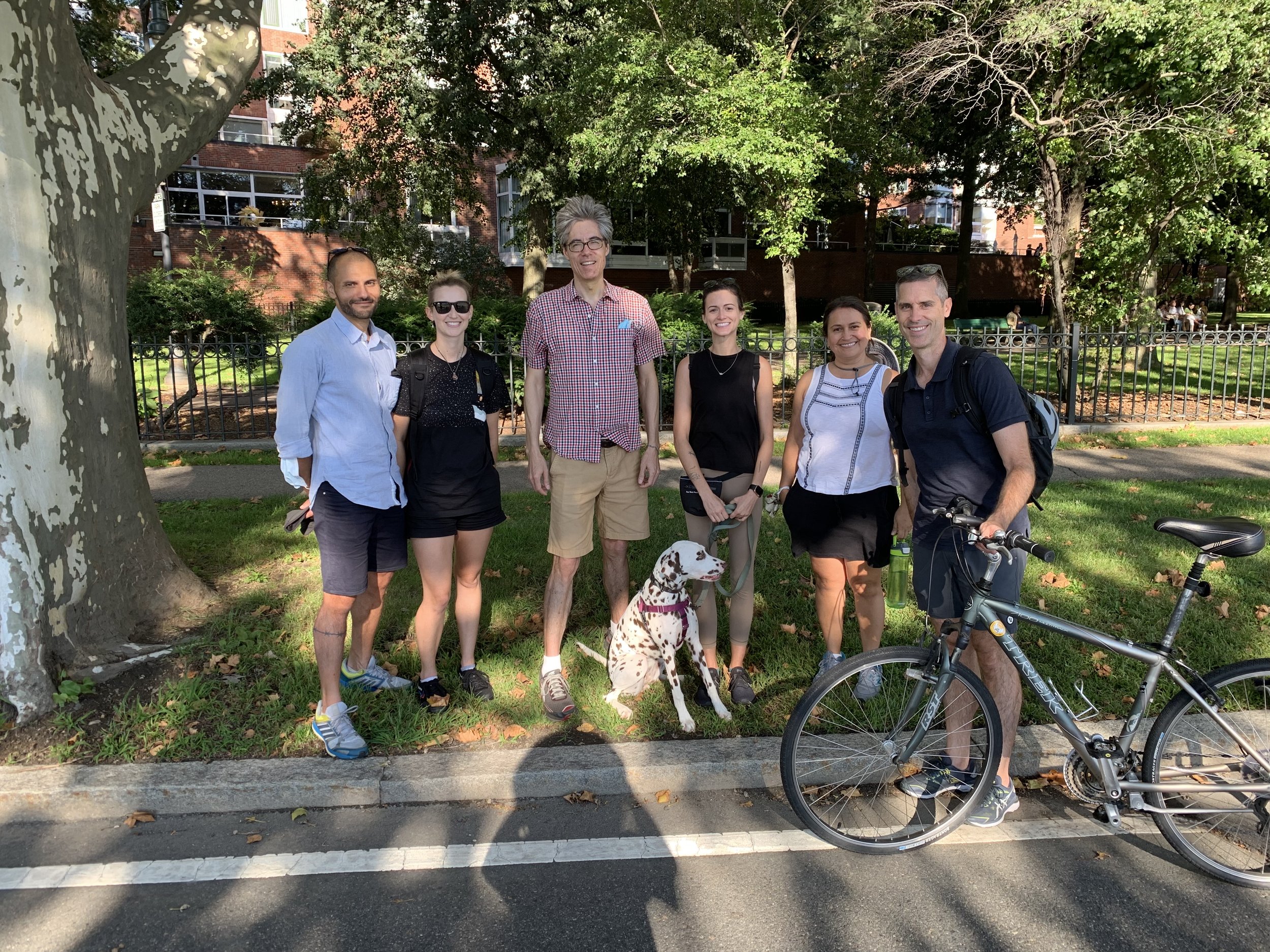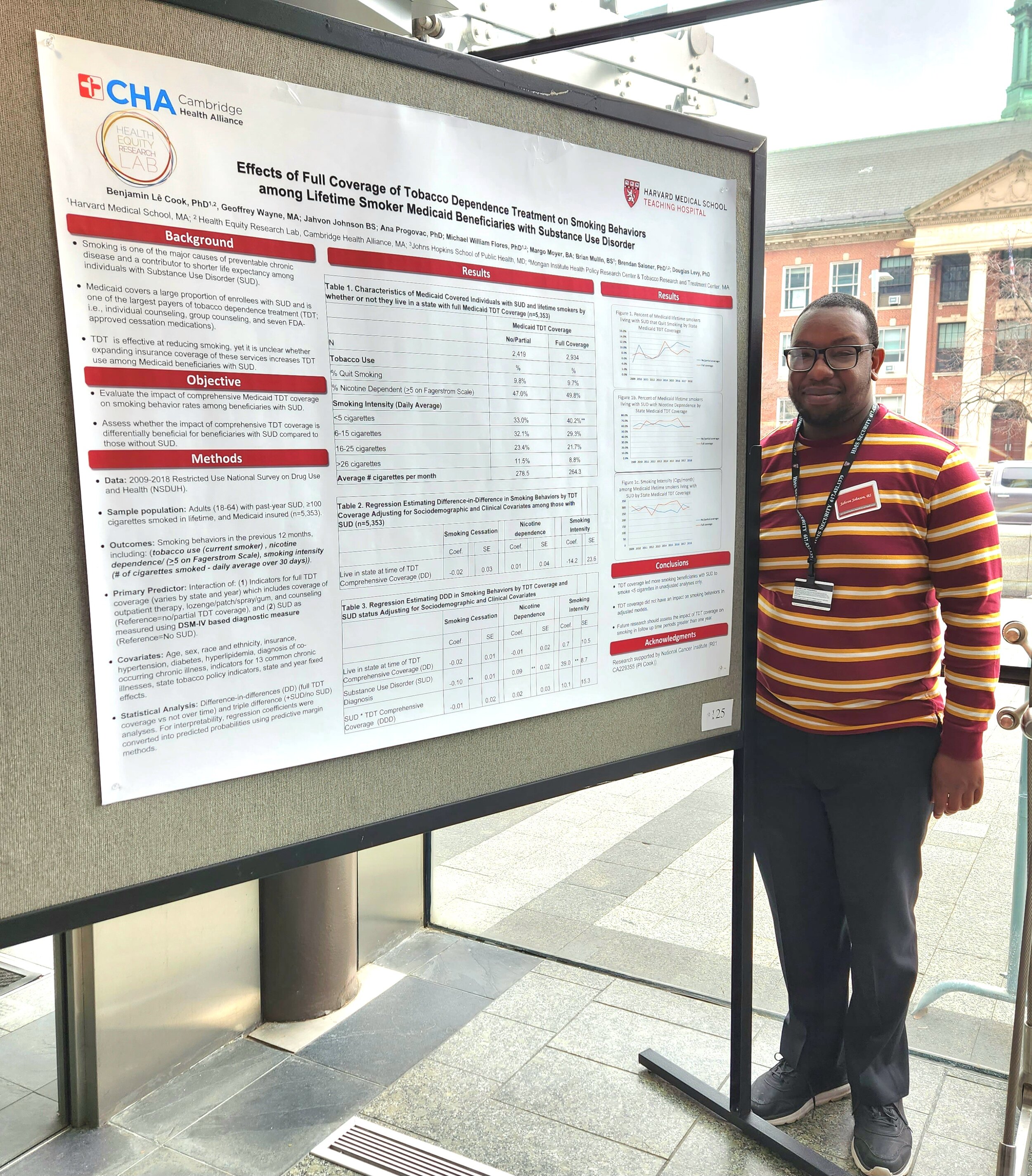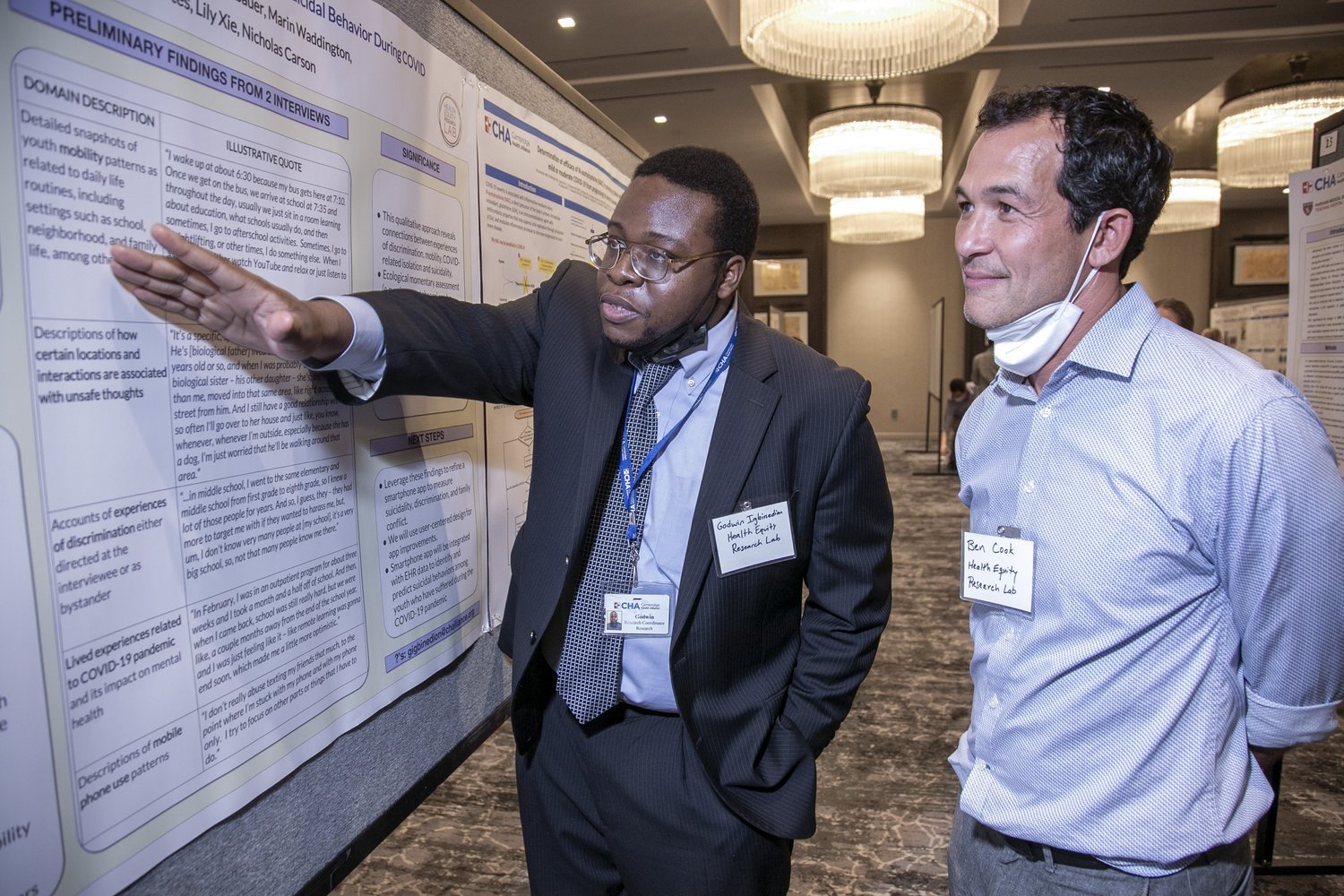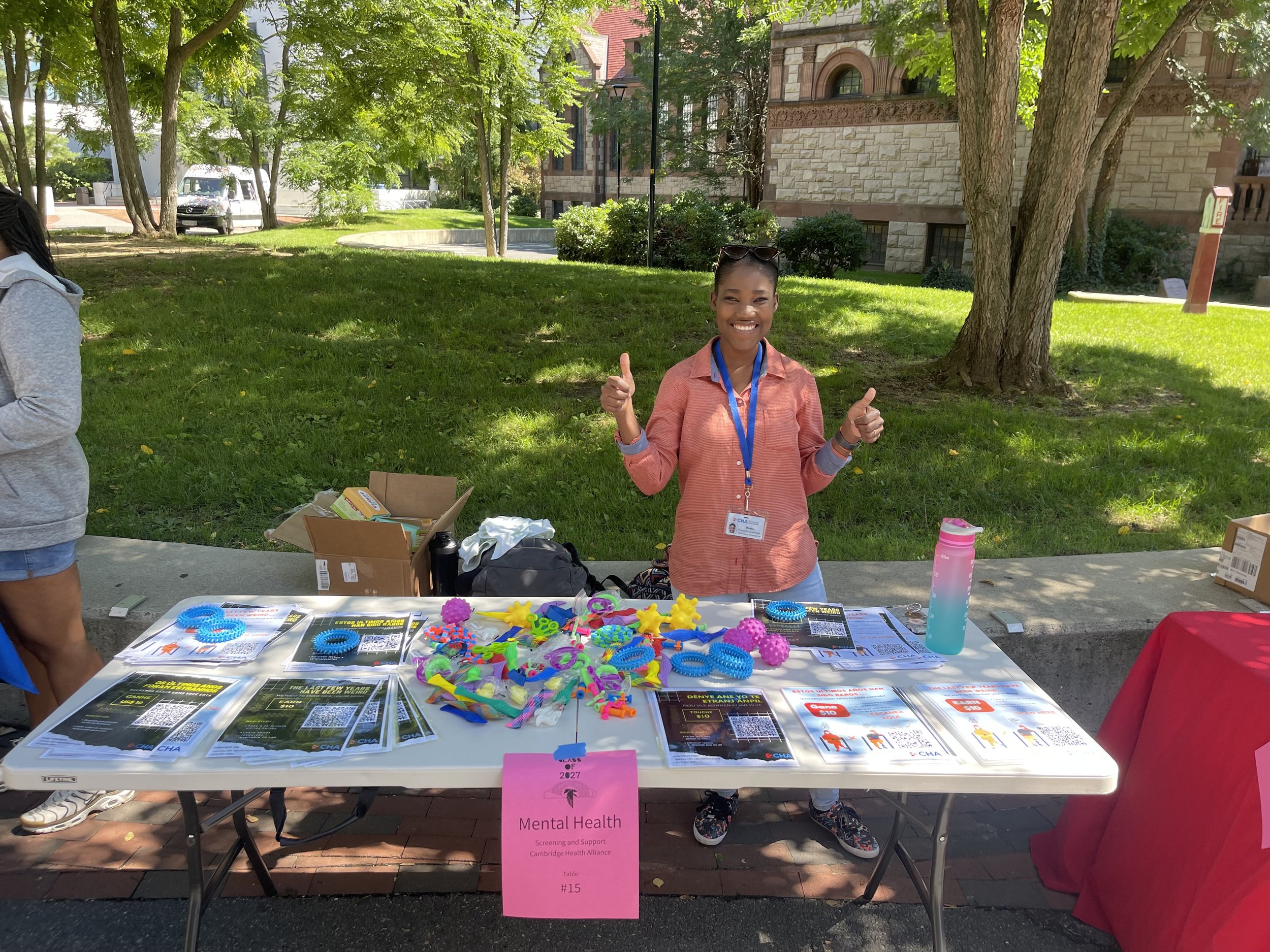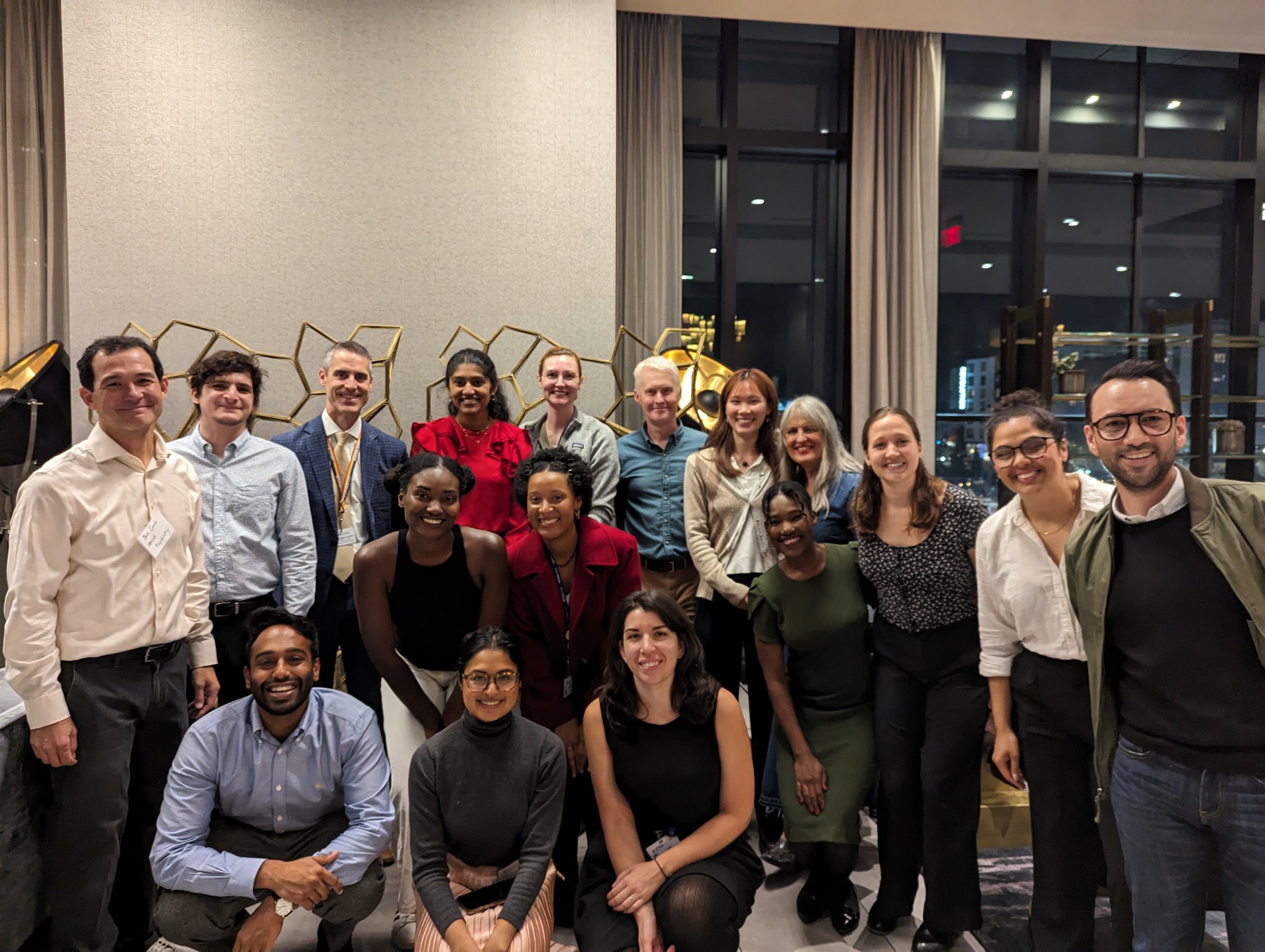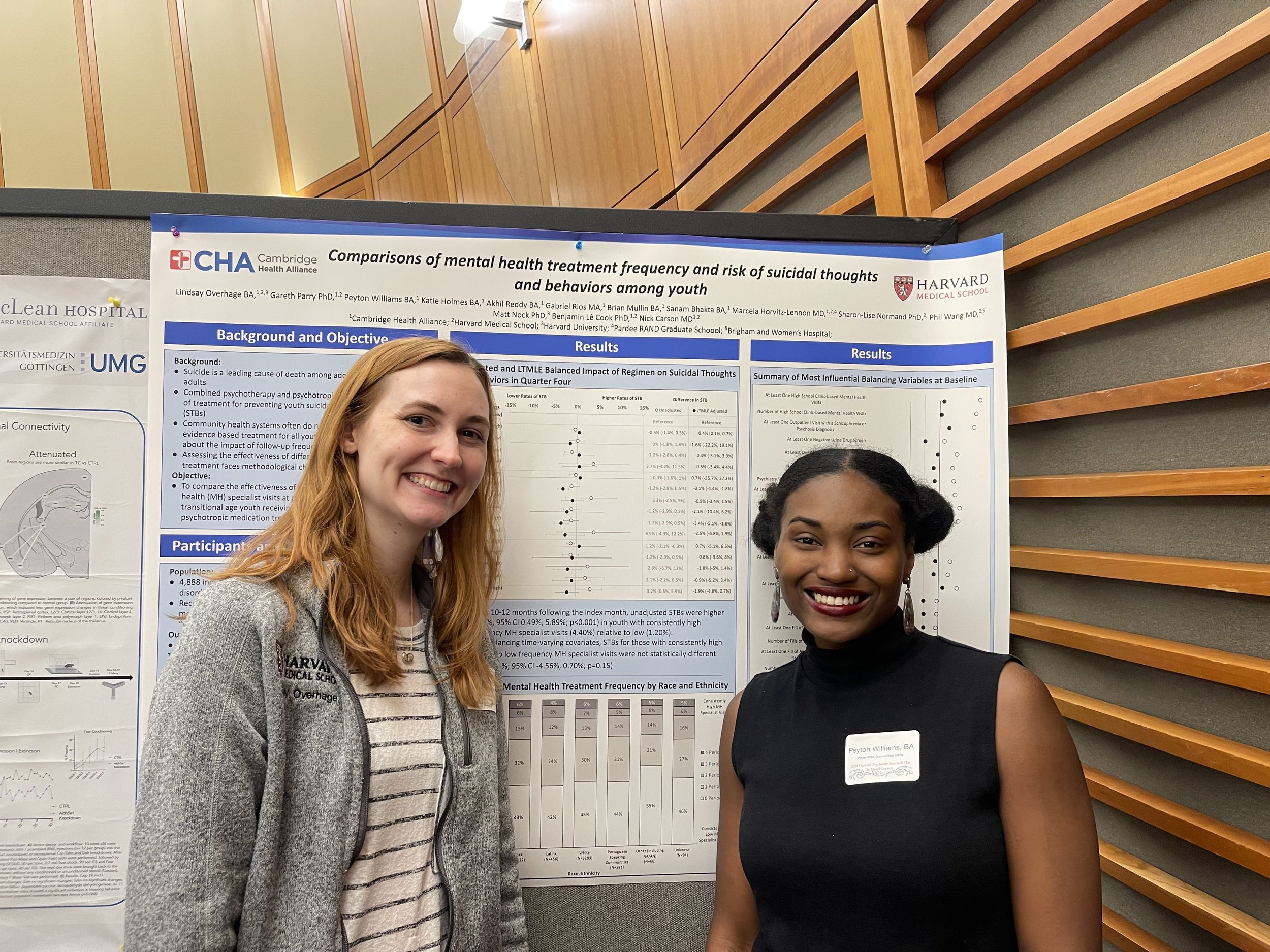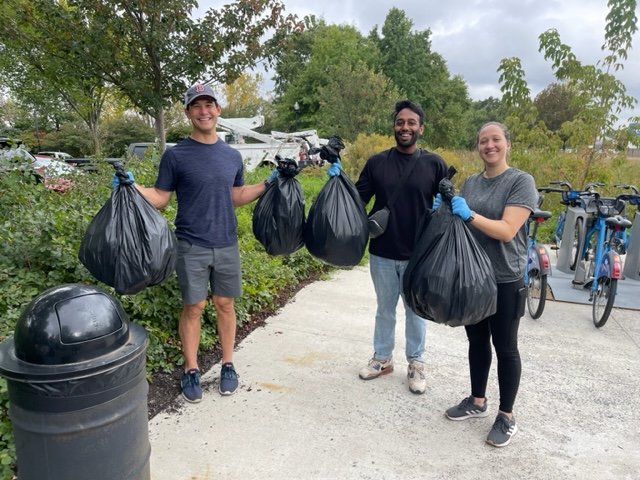Health Equity Research Lab Investigators
Albert Lo, PhD
-
Albert Lo, PhD (he/him) is a child psychologist at Cambridge Health Alliance. He has research and clinical interests in the mental health and developmental needs of youth and families from marginalized backgrounds. Albert's past and ongoing research work has focused on parenting processes and youth adjustment in the areas of immigration and adoption. He received his doctorate in clinical psychology from the University of Massachusetts Amherst. He completed his clinical internship at the Virginia Treatment Center for Children/Virginia Commonwealth University Medical Center and his fellowship at the Center for Multicultural Training in Psychology at the Chobanian & Avedisian School of Medicine.cription text goes here
Benjamin Lê Cook, PhD, MPH
-
Benjamin Lê Cook, PhD, MPH (he/him) is Director of the Health Equity Research Lab, Vice Chair of Research, Department of Psychiatry at Cambridge Health Alliance, and Professor, Department of Psychiatry at Harvard Medical School. His research interests are in improving methods for measuring disparities, and applying these methods to understanding the mechanisms underlying mental health and substance abuse treatment disparities, the association between acculturation and mental health, and geographic differences in mental health service use disparities. He received a Ph.D. in Health Policy at Harvard University concentrating in Evaluative Science and Statistics, an MPH from UNC-Chapel Hill in the Department of Health Behavior and Health Education, and a BA in psychology from Swarthmore College.
Gareth Parry, PhD
-
Gareth Parry (he/him) has a background in health services research and biostatistics, focusing on the evaluation of improvement & implementation initiatives, and quality & safety measurement. He currently provides analytic support to numerous HERLab projects. Previously, he led the evaluation department, at the Institute for Healthcare Improvement (IHI), developing a novel mixed-method rapid-cycle evaluation approach for implementation and improvement initiatives. His early career in the United Kingdom (UK) focused on developing and applying the Clinical Risk Index for Babies (CRIB) Score, used internationally in clinical and service delivery research. He undertook similar work in pediatric and adult intensive care, becoming the founding director of the UK pediatric Intensive Care Audit Network (PICANet).
Marcela Horvitz-Lennon, MD
-
Marcela Horvitz-Lennon is an associate professor of psychiatry (part-time) at Harvard Medical School, senior scientist at the Health Equity Research Laboratory, Cambridge Health Alliance, and a practicing psychiatrist at Cambridge Health Alliance. She is also a senior physician policy researcher at RAND and a core faculty member of the Pardee RAND Graduate School. She has led NIH and other publicly funded research and evaluations focused on services and policies of relevance to individuals with serious mental illness, a racially and ethnically diverse population that in addition to high disease burden often experiences poverty and discrimination. Horvitz-Lennon has conducted research on access to and quality of care; disparities associated with race and ethnicity and place of residence; effectiveness and safety of treatments; underuse and overuse of mental health interventions; integration of physical and mental health care; diffusion of innovations; and Medicaid and federal health care policy including value-based payment. Horvitz-Lennon has served as Ad-Hoc and standing reviewer at NIH study sections and is the outgoing chair of the Clinical Data Management and Analysis (CDMA) study section. She is a member of the Clinical Guideline Writing Group of the American Psychiatric Association and served on a National Academies of Sciences, Engineering, and Medicine committee that reviewed several programs in the Comprehensive Addiction and Recovery Act. Horvitz-Lennon has mentored pre-doctoral students and served as member/director of Ph.D. dissertation committees, and through her clinical position, she is actively involved in medical student education and resident training. Horvitz-Lennon earned her MD in Santiago, Chile, and a Masters degree in Public Health at Johns Hopkins University School of Public Health. She completed her psychiatric residency training at the University of Maryland Medical School and a fellowship in Community Psychiatry at Johns Hopkins Medical School.
Nicholas Carson, MD, FRCPC
-
Nicholas Carson, MD is an Assistant Professor in Psychiatry at Harvard Medical School and a Research Scientist at the Health Equity Research Lab. He is also Division Chief for Child & Adolescent Psychiatry at the Cambridge Health Alliance, leading services in outpatient, school-based, integrated care, and inpatient settings. Dr. Carson studies suicide prevention among minoritized youth using big data, including the use of natural language processing and machine learning with electronic health records. His research aims to produce clinical innovations that improve the safety of underserved youth at risk for suicide. He enjoys teaching clinical scholarship to child psychiatry fellows and mentoring early career staff. Dr. Carson received his BA and MD from McGill University, completed his psychiatry residency at the University of Pennsylvania and fellowship training in Child and Adolescent Psychiatry at the Cambridge Health Alliance/Harvard Medical School.
Dharma Cortés, PhD
-
Dharma Cortés, PhD (she/her/ella) received her Bachelor’s degree in Psychology and a Master’s degree from the University of Puerto Rico, a Doctorate degree in Sociology from Fordham University, and completed her post-doctoral training in Medical Anthropology at Harvard Medical School’s Department of Social Medicine. For more than twenty years Dr. Cortés has been conducting community-based research with Latinos in the U.S., focusing on acculturation, health, mental health, and access to healthcare. She has contributed as principal investigator, co-investigator and consultant to studies funded by the NIH, the Centers for Medicare and Medicaid Services, and the Robert Wood-Johnson Foundation.
James Barrett, PhD
-
James Barrett, PhD (he/him) is the Director of the Clinical Support Unit at the Cambridge Police Department and an Assistant Professor of Psychology in the Department of Psychiatry (part-time) at Harvard Medical School. He is an Associate Clinical Researcher at the Health Equity Research Lab at the Cambridge Health Alliance where he received the Academic Council Award for Excellence. Dr. Barrett is the author and developer of the Fight Navigator curriculum under the Eleanor and Miles Shore Fellowship from the Harvard Medical School to address retaliatory violence in youth. He is a member of the American Psychological Association, Association of Threat Assessment Professionals (ATAP) and the FBI’s Mass Bay Threat Assessment Team. Dr. Barrett is National Institute of Justice LEADS Scholar and has presented at numerous national conferences on juvenile justice and diversion, gang violence, juvenile safety assessment, preventing retaliatory violence, and police-mental health partnerships. He has contributed to national meetings convened by SAMHSA, the MacArthur Foundation and the International Association of Chiefs of Police.
Michael Flores, PhD, MPH
-
Michael Flores, Ph.D., M.P.H., is an Instructor in the Department of Psychiatry at Harvard Medical School (HMS) and a Senior Scientist in the Health Equity Research Lab at Cambridge Health Alliance (CHA). His research employs rigorous analytic methods to inform policy development and improve the health outcomes and care quality of racial and ethnic minorities with behavioral health disorders. Dr. Flores has two research arcs: 1) tracking national racial and ethnic disparity trends in behavioral health treatment and investigating the mechanisms underlying these disparities; and 2) assessing the extent to which fiscal policies (Medicaid/Medicare) targeting behavioral health services impact treatment access overall, and with a special focus on minoritized populations. He completed a postdoctoral research fellowship at HMS/CHA, where he was awarded the Norman E. Zinberg Fellowship in Addiction Psychiatry Research from HMS. In recognition of his promise as an early-stage investigator, Dr. Flores was awarded a New Investigator Award from the National Institute on Drug Abuse and a Diversity Scholar Award from the American Society of Health Economists. He received his Ph.D. in Health Services Research from Brown University, an M.P.H. from CSUF, and BA from UCSB.
Rajen Aldis, MD
-
Rajendra Aldis, MD is the Associate Medical Director of Research Informatics at Cambridge Health Alliance (CHA) and an Instructor in Psychiatry at Harvard Medical School. He also provides direct patient care as a board certified psychiatrist in CHA’s Primary Care Integrated Behavioral Health Program. In the CHA IT department, he has a leadership role in developing CHA’s research informatics and predictive analytics capacity. Dr. Aldis’ research interests include the application of machine learning and electronic health record data to assess and mitigate health disparities. Dr. Aldis received his MD from Dartmouth Medical School and a Master of Science in Computer Science from Northeastern University. He completed residency in adult psychiatry at Cambridge Health Alliance/Harvard Medical School, and completed his fellowship training in global mental health delivery at Harvard Medical School/Partners in Health.
Valeria A. Chambers, Ed.M., CAS, CPS
-
Valeria Chambers, (she, her, hers) EdM, CAS, CPS, is the founder of Black Voices: Pathways4Recovery, a state-wide advocacy and leadership support network for Blacks and African Americans. She uses her lived experience as a person in mental health recovery in her work as a Sr. Community Researcher at the Health Equity Research Lab, and as Peer Support Lead & Training Coordinator for the CHA Community Behavioral Health Centers. Valeria also works as a Peer Consultant at the Center of Excellence for Psychosocial and Systemic Research, MGH, and serves on the board of directors of Sankofa International, a brand new non-profit bringing Peer Support in Addictions to parts of Africa. She genuinely believes that peer support, collaboration, and community engagement can be amazing avenues for individual & systemic growth, transformation, and healing. Valeria continually looks for ways to include and amplify voices that often go unheard due to institutional and systemic racism and oppression. Her goal is to help increase access to trauma-informed, culturally responsive mental health connections for people in marginalized communities, via community engaged research, peer support, and advocacy.
Health Equity Research Lab Staff
Akhil Reddy
-
Akhil Reddy (he/him) earned his BS in Interdisciplinary Studies (Biology, Computer Science, and Business) from the University of Pittsburgh. During his undergraduate career, Akhil worked in a variety of health-related positions, including molecular biology research, patient care for the elderly, and public policy for unintentional childhood injuries. He is passionate about data solutions and community-centered research in health equity and how these methods can bridge gaps in healthcare access
Angela Orangio
-
Angela Orangio (she/her) oversees the Lab’s grants and business administration. She has a BA in Business Administration from Boston College and has varied work experiences from business contract negotiation to direct health services and advocacy positions. All of these experiences are put to use in supporting the team and its work to promote health equity.
Danta Bien-Aimé
-
Danta Bien-Aimé (she/her) has varied experience in program management, research, early childhood development, and cervical cancer prevention. She believes in strong, resilient communities with empowered, socially inclusive youth. She is also passionate about social justice. Danta is a Fulbright alumna with a Master of Medical Sciences in Global Health Delivery (MMSc-GHD) from Harvard Medical School and a Bachelor of Science in Nursing from the Episcopal University of Haiti. Danta is a HER lab research coordinator, working with principal investigators on innovative multi-funded and/or multi-site research on health disparities.
Kara Nash
-
Kara Nash (she/her) is a Financial Analyst at the Health Equity Research Lab. Since receiving her BS from St. John’s University in Queens, New York, she has held administrative positions within the healthcare field. In her position at the Health Equity Research Lab, Kara enjoys supporting the team with a wide range of financial and administrative functions.
Katie Holmes
-
Katie Holmes (she/her) graduated from the University of Pittsburgh with a BS in Psychology and a BA in Sociology. In her undergrad experience she worked at the SIERA lab, researching emotion regulation, stress, and immune system interactions in older adults. She is interested in mental health research and is passionate about reducing disparities within the healthcare system.
Peyton Williams
-
Peyton Williams (she/her) earned her B.A in Human Evolutionary Biology: Mind, Brain, Behavior with a minor in Economics from Harvard College. As an undergraduate, Peyton worked at the LiveWell lab at MGH researching the health impacts of a Massachusetts social needs policy on low-income individuals. She also enjoyed being a peer mental health counselor and engaging in public service. She is passionate about reducing health disparities and improving access to healthcare through evidence-based research.
Sarah Mazen
-
Sarah Mazen (she/her) earned her B.S. in Health Studies from the University of Waterloo and her M.S. in Public Health Data Science from Boston University. She has gained diverse research experience throughout her academic career, working with interdisciplinary teams on various public health topics. Her research experience includes exploring physical and cognitive health among older adults, TB care pathways, and primary and preventative care use. Sarah is passionate about reducing disparities and inequities in mental health care and promoting inclusive, community-centered health research to improve healthcare access and outcomes.
Taylor Witkowski
-
Taylor Witkowski (she/her) has a diverse portfolio of experience managing projects and conducting evaluations in under-resourced communities. Her training in research administration, compliance, and management serves her role in operationalizing and streamlining the Lab’s work. She has a Masters Degree from Clark University and a Bachelors from Texas State University. Taylor enjoys working in a cross-functional, multi-disciplinary environment and supporting the HERLab in its mission to combat systemic health inequities.
Health Equity Research Lab Fellows & Interns
-
Lindsay is an MD-PhD student at Harvard, pursuing a PhD in Health Policy. She is interested in reducing disparities in access to mental health care, and in using machine learning techniques to predict clinical outcomes in mental health. Before medical school, she worked with Drs. Vicki Fung and John Hsu at the MGH Mongan Institute Health Policy Center as a research assistant. At the HERLab, Lindsay is focused on primarily two projects: Assessing the causal links between different treatment regimes and suicide behavior outcomes, and how we can use nationally representative household datasets to impute need for treatment into Medicaid and Medicare claims data.
-
Nikhil Rao (he/they) is pursuing a PhD in Health Policy at Harvard with a concentration in Health Policy. Prior to beginning studies at Harvard, Nikhil worked as a research analyst in the Urban Institute’s Health Policy Center. At the Urban Institute, he contributed to studies related to health care disparities in Medicare- and Medicaid-insured populations, structural racism’s impact on health, and access to medication for opioid use disorder. Their research interests include documenting and addressing racialized and classed behavioral health care disparities, health (care) outcomes for people with current or prior involvement with the criminal legal system, and harm reduction services for people who use drugs. He graduated from the University of North Carolina at Chapel Hill in 2021 with a BS in Public Health through the Department of Health Policy and Management and a second major in Psychology.
-
Varshini is currently a medical student at the University of Michigan Medical School. She previously graduated from Harvard University studying Neuroscience and Social Anthropology with a secondary in Global Health and Health Policy. She is very passionate about evaluating existing health interventions and taking actionable steps towards reducing healthcare equity, recognizing that the human right to health is often denied due to structural violence which infiltrates healthcare systems. Varshini is specifically interested in improving access to mental healthcare for vulnerable populations, and has previously worked with the Shamiri Institute, an organization delivering low-cost, low-stigma mental health interventions.
-
Daisy (she/her) is a recent graduate at MIT, obtaining a degree in Biological Engineering and minoring in Women’s & Gender Studies. Recognizing that quality health care is a right for all, she is passionate about reducing health disparities, especially for women and gender minorities. She aims to pursue a career in medicine as a physician and public health researcher.
-
Sheidy is a rising senior at the University of North Carolina at Chapel Hill, pursuing a degree in Exercise and Sport Science with a minor in Medical Anthropology. On campus, she does research with the STAR Heel Lab aiding a federally funded study through data collection and coding to analyze on-field movement responses and concussions. She has also assisted the Lexington Urban County Government in evaluating the relationship between food deserts and disparate health outcomes to guide the recipient of mobile market funds.
Our lab alumni go on to do great things!
Read about them here.
Center for Health Equity at Montefiore Einstein
PRIME CHE is a research center dedicated to reducing health and health care disparities through developing and rigorously evaluating clinical and policy interventions, engaging community members, and mobilizing system transformation. Situated in the Department of Psychiatry and Behavioral Sciences Psychological Research Institute of Montefiore/Einstein, this Center is committed to health equity, capitalizing upon the methodological expertise, rich tradition of applied social medicine, and strong existing community and patient relationships in the Bronx and at other academic sites across the country. PRIME CHE is the Health Equity Research Lab’s sister lab.









